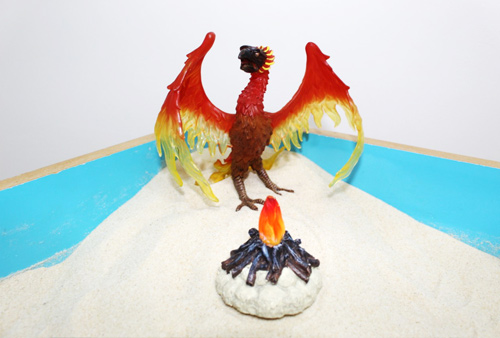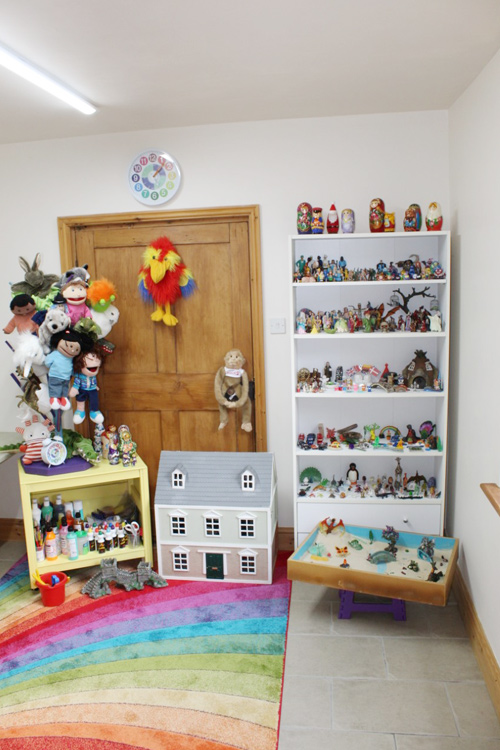Children and Young People’s Counselling
The Children and Young People’s Service is for individuals aged 5 to 18th Birthday.
At Raedan House we have a creative therapy room which is ideal for younger children and/or we may see children with their parents in one of our other consulting rooms.
We have prepared this information specifically aimed at younger people but parents may also find the information contained useful:-

Information for Children and Young People
This page is intended to give individuals over 12 years of age more information about the Children and Young People’s Counselling Service. It answers commonly asked questions and explains some of the terms and conditions of the counselling offered. We hope it will also be useful to parents and carers of young people under 12 so that they can, when appropriate, understand and help their child understand what counselling entails and what to expect. For General Terms and Conditions for Counselling please click here.
What’s counselling about?
Sometimes we all have problems that are worrying. Think of a confusing jigsaw when all the pieces are difficult to match together. Talking about a problem in counselling is like sorting out all the pieces so we can begin to build a picture that makes more sense to us.
Sometimes it’s difficult to talk to parents, friends or teachers about things that are making us anxious. A counsellor is someone who you can talk to in a different way, someone who will listen to you very carefully, who will not judge you or tell you what to do. Counselling is about helping you to work things out for yourself, making decisions and choices and looking at things from different angles. It can help you to feel better about yourself.
What kind of things do people talk about in counselling?
Whatever matters to them! Whatever is worrying for them! It could be about lots of different things and here are some examples that might be similar to your problems thoughts, questions and feelings:-
“Parents Separating – Is it my fault? Their breaking up is breaking me up too.”
“Chaos At Home -I want to go out with my mates and make my own decisions. I’m arguing with parents all the time. They never listen to me, why should I listen to them???”
“Making Friends/Keeping Friends – Everyone else seems to have loads of friends. I haven’t. What’s wrong with me?”
“I’m Feeling Angry But I Don’t Know Why – I’m worried because I keep feeling that I want to lash out at people. I can’t control myself. I’m always in trouble at home and at school because of it.”
“Bullies Are About – I don’t want to be at school. Bullies bug me every day and it’s getting worse.”
“A Tough Time At School – The work is piling up. I’m getting more and more behind. I can’t seem to get on with it. The longer that this goes on the worse I feel.”
“Loss of Someone Special – I miss this person so much. I’ll never get through this. It’ll be like this forever. Nobody understands how bad I’m feeling.”
“Feelings About Myself – Sometimes I don’t understand how I feel or why I feel like I do.”
How will I know if Counselling is right for me?
You can meet the counsellor for one or more sessions to find out for yourself. You can ask questions, see how you feel. The counsellor will talk to you about where and when to come and how often you will meet. Counselling is voluntary. You have the choice to come or not. Whatever you decide will be OK.
My problems and worries are private. Will other people know what I have talked about?
No. What you talk about is confidential. That means it’s between you and the counsellor. It’s your time and your space to be with someone who is there for you. If you would like to talk to anyone else about what you have discussed in the counselling session, then of course you can. The counsellor will keep confidentiality unless you are at risk of harm. The counsellor may then need to talk to someone else to help keep you safe, but will always try to talk with you about this first. Alternatively if you would like the counsellor to discuss something with someone else for you, then this is an option which can be discussed together.
Do I need permission from anyone?
Depending on your age it may be possible to come for counselling without your parents/carers being informed and this will be discussed with you before you start.
Will anything be written about me?
Keeping information, about people, safe and confidential is very important to the counsellor. The counsellor will make some notes about what has been talked about in the session, and these are kept safely. All information written and discussed is private and confidential unless there is an agreed or overriding need to share this information in your best interests. A counsellor presents their work to a counselling supervisor regularly. This person checks the counsellor is working well with you. At all times you will remain anonymous.
What if I can’t make it to a planned counselling session?
Trust and reliability are essential to the counselling relationship and it is really important that you let the counsellor know as soon as possible if you are unable to attend agreed sessions. If it is not possible to attend please see the General Terms and Conditions for Counselling.
What should I do if I want to stop counselling?
Usually the counsellor will regularly discuss with you about how you are feeling about coming to counselling. If you wish the counselling to stop for any reason you should tell the counsellor and, if possible, allow at least one or two more sessions to give time for working through any feelings that arise.
After you have finished your counselling you may be asked to fill in an evaluation form. This form is anonymous, unless you choose to put your name on it. The feedback you give will let us know how well we are helping the people that we see.

